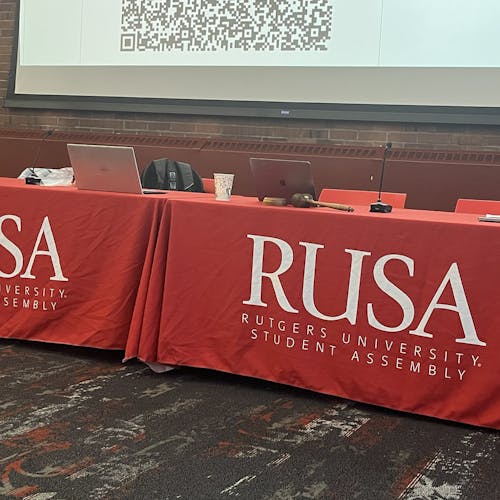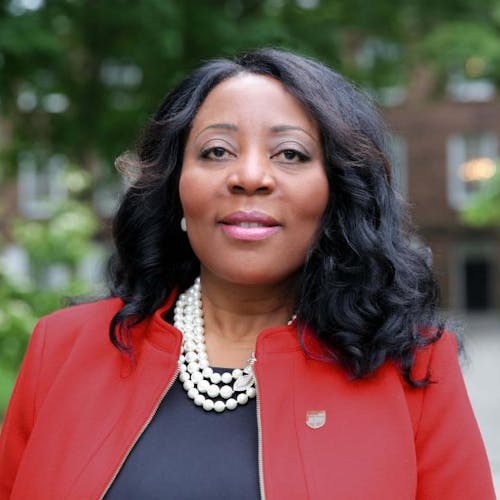24 Hour Truce informs students about sexual assault and domestic violence

Students powered through 24 hours of events and discussion from Friday to Saturday to raise awareness on sexual assault and harassment.
Ruth Anne Koenick, director of the Office of Violence Prevention and Victim Assistance, said the theme of this event was conceptualized in recognition of a speech Andrea Dworkin made in 1983 at the Midwest Regional Conference of the National Organization for Changing Men.
In her speech, Dworkin asked for “one day of respite,” where no agonies are added to the old ones. Staff members wore matching T-shirts with Dworkin’s quote printed on the back.
She said survivors of sexual harassment and sexual assault remind VPVA staff of why they create such events, get up in the middle of the night and stay in the office until daybreak.
Laura Luciano, assistant director at VPVA, said the end goal of the day’s programming was to have audience members and event participants leave talking about sexual assault instead of dismissing it as someone else’s problem.
Luciano said VPVA organized various workshops, such as a media literacy program, which taught student how the media they consume might contribute to rape culture.
The “24 Hour Truce” was meant to encourage all individuals to feel comfortable speaking out against sexual assault, in addition to educating students about prevention strategies, Luciano said.
She said the only way rape culture would end is if society stops relying only on victims to raise awareness.
“We can’t rely on only victims to speak out,” she said. “We need to stand in solidarity with them. We also can’t rely on people telling perpetrators and abusers to tell them not to do what they’re doing because that isn’t going to change their behavior.”
The most effective way of ensuring that others also become involved in the discussion is by educating them about bystander intervention, Luciano said. Because of this, a large portion of the programs was dedicated to this prevention strategy.
A performance from SCREAM Theater, which stands for Students Challenging Realities and Educating Against Myths, kicked off the day of anti-rape programming.
Presenting an improvised skit of an on-campus sexual assault, SCREAM promotes bystander intervention as the best means of preventing violence.
Brady Root, prevention education coordinator for VPVA and coordinator of SCREAM Theater, said bystander intervention is simply an aspect of civic virtue.
“Bystander intervention is a fancy term for the common concept of everybody being responsible for creating the world that we want to live in,” Root said.
For the keynote event, the organizers screened a recording from Jessica Valenti, an activist and Rutgers alumna, and hosted a talk with Wagatwe Wanjuki.
Wanjuki, a writer and Rutgers alumna, said certain elements of modern culture do not contribute to the discussion on rape.
Before getting expelled from Tufts University as an undergraduate, Wanjuki was in an abusive relationship that the university did not act on when she reported it.
She said the experience was devastating because she had hoped for justice. Instead, she went to the campus judicial project, which also did not take action.
After being rejected on multiple occasions, Wanjuki said she just tried to continue with her activism and academic career.
“I was oppressed when I was raped and when I was in an abusive relationship,” she said. “It was the school’s responsibility to counter that oppression. Instead of countering that, they compounded on that oppression.”
Wanjuki said rape exists due to rapists, not because women drink, date angry men or wear short skirts. Erasing the perpetrator and highlighting the victim is a flaw in reasoning, she said.
“We’re still talking about rape like it has something to do with drinking,” she said. “Getting drunk doesn’t get you raped. Being in the presence of a rapists gets you raped.”
Wanjuki said she is beyond impressed and pleased to see that years after her sexual assault, sexual assault is a huge issue on campus.
“Why are schools so willing to kick a student out when they cheat on a test but not when they break the law and break a student? Where are their priorities?” she said.
Although the event was organized by VPVA, 16 sponsors financially backed the day’s anti-rape workshops, including the School of Communication and Information and student organizations such as the Interfraternity Council and the Rutgers University Programming Association.
Matthew Ferguson, interim director of New Student Orientation and Family Programs, said anti-rape education must extend beyond first-year students.
While he is excited to see such unity within the Rutgers community in the fight against rape culture, Ferguson is also proud of the University for being one of the leaders in the fight.
“More and more universities, school districts and other public organizations [have been] in the spotlight for negative reasons concerning the issue of sexual assault,” Ferguson said. “We’re proud that we are a place that is not only supportive, but leading the cause.”



